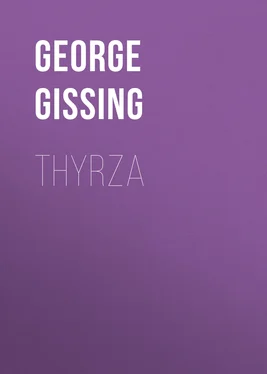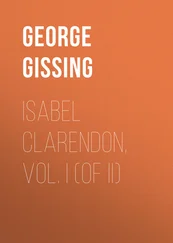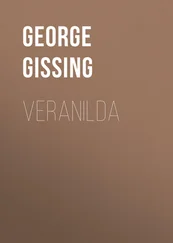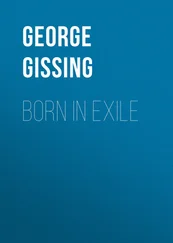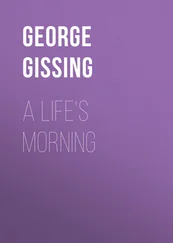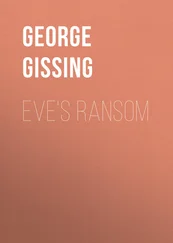George Gissing - Thyrza
Здесь есть возможность читать онлайн «George Gissing - Thyrza» — ознакомительный отрывок электронной книги совершенно бесплатно, а после прочтения отрывка купить полную версию. В некоторых случаях можно слушать аудио, скачать через торрент в формате fb2 и присутствует краткое содержание. Жанр: foreign_prose, literature_19, foreign_antique, на английском языке. Описание произведения, (предисловие) а так же отзывы посетителей доступны на портале библиотеки ЛибКат.
- Название:Thyrza
- Автор:
- Жанр:
- Год:неизвестен
- ISBN:нет данных
- Рейтинг книги:3 / 5. Голосов: 1
-
Избранное:Добавить в избранное
- Отзывы:
-
Ваша оценка:
- 60
- 1
- 2
- 3
- 4
- 5
Thyrza: краткое содержание, описание и аннотация
Предлагаем к чтению аннотацию, описание, краткое содержание или предисловие (зависит от того, что написал сам автор книги «Thyrza»). Если вы не нашли необходимую информацию о книге — напишите в комментариях, мы постараемся отыскать её.
Thyrza — читать онлайн ознакомительный отрывок
Ниже представлен текст книги, разбитый по страницам. Система сохранения места последней прочитанной страницы, позволяет с удобством читать онлайн бесплатно книгу «Thyrza», без необходимости каждый раз заново искать на чём Вы остановились. Поставьте закладку, и сможете в любой момент перейти на страницу, на которой закончили чтение.
Интервал:
Закладка:
'What a man you are for keepin' yourself cool, Mr. Hackroyd!' she exclaimed; 'it's like a breath o' fresh air to look at you, I'm sure. If this kind o' weather goes on there won't be much left o' me. I'm a-goin' like the butter.'
'It's warmish, that's true,' said Luke, when she had finished her laugh. 'I heard Mr. Boddy playing in there, and I've got a message for him.'
'Come in and sit down. He's just practisin' a new piece for his club to-night.'
Ackroyd advanced into the parlour. The table was spread for tea, and at the tray sat Mrs. Bower's daughter, Mary. She was a girl of nineteen, sparely made, and rather plain-featured, yet with a thoughtful, interesting face. Her smile was brief, and always passed into an expression of melancholy, which in its turn did not last long; for the most part she seemed occupied with thoughts which lay on the borderland between reflection and anxiety. Her dress was remarkably plain, contrasting with her mother's, and her hair was arranged in the simplest way.
In a round-backed chair at a distance from the table sat an old man with a wooden leg, a fiddle on his knee. His face was parchmenty, his cheeks sunken, his lips compressed into a long, straight line; his small grey eyes had an anxious look, yet were ever ready to twinkle into a smile. He wore a suit of black, preserved from sheer decay by a needle too evidently unskilled. Wrapped about a scarcely visible collar was a broad black neckcloth of the antique fashion; his one shoe was cobbled into shapelessness. Mr. Boddy's spirit had proved more durable than his garments. Often hard set to earn the few shillings a week that sufficed to him, he kept up a long-standing reputation for joviality, and, with the aid of his fiddle, made himself welcome at many a festive gathering in Lambeth.
'Give Mr. Hackroyd a cup o' tea, Mary,' said Mrs. Bower. 'How you pore men go about your work days like this is more than I can understand. I haven't life enough in me to drive away a fly as settles on my nose. It's all very well for you to laugh, Mr. Boddy. There's good in everything, if we only see it, and you may thank the trouble you've had as it's kep' your flesh down.'
Ackroyd addressed the old man.
'There's a friend of mine in Newport Street would be glad to have you do a little job for him, Mr. Boddy. Two or three chairs, I think.'
Mr. Boddy held forth his stumpy, wrinkled hand.
'Give us a friendly grip, Mr. Ackroyd! There's never a friend in this world but the man as finds you work; that's the philosophy as has come o' my three-score-and-nine years. What's the name and address? I'll be round the first thing on Monday morning.'
The information was given.
'You just make a note o' that in your head, Mary, my dear,' the old mam continued. ''Taint very likely I'll forget, but my memory do play me a trick now and then. Ask me about things as happened fifty years ago, and I'll serve you as well as the almanac. It's the same with my eyes. I used to be near-sighted, and now I'll read you the sign-board across the street easier than that big bill on the wall.'
He raised his violin, and struck out with spirit 'The March of the Men of Harlech.'
'That's the teen as always goes with me on my way to work,' he said, with a laugh. 'It keeps up my courage; this old timber o' mine stumps time on the pavement, and I feel I'm good for something yet. If only the hand'll keep steady! Firm enough yet, eh, Mr. Ackroyd?'
He swept the bow through a few ringing chords.
'Firm enough,' said Luke, 'and a fine tone, too. I suppose the older the fiddle is the better it gets?'
'Ah, 'taint like these fingers. Old Jo Racket played this instrument more than sixty years ago; so far back I can answer for it. You remember Jo, Mrs. Bower, ma'am? Yes, yes, you can just remember him; you was a little 'un when he'd use to crawl round from the work'us of a Sunday to the "Green Man." When he went into the 'Ouse he give the fiddle to Mat Trent, Lyddy and Thyrza's father, Mr. Ackroyd. Ah, talk of a player! You should a' heard what Mat could do with this 'ere instrument. What do you say, Mrs. Bower, ma'am?'
'He was a good player, was Mr. Trent; but not better than somebody else we know of, eh, Mr. Hackroyd?'
'Now don't you go pervertin' my judgment with flattery, ma'am,' said the old man, looking pleased for all that. 'Matthew Trent was Matthew Trent, an' Lambeth 'll never know another like him. He was made o' music! When did you hear any man with a tenor voice like his? He made songs, too, Mr. Ackroyd—words, music, an' all. Why, Thyrza sings one of 'em still.'
'But how does she remember it?' Ackroyd asked with much interest. 'He died when she was a baby.'
'Yes, yes, she don't remember it of her father. It was me as taught her it, to be sure, as I did most o' the other songs she knows.'
'But she wasn't a baby either,' put in Mrs. Bower. 'She was four years; an' Lydia was four years older.'
'Four years an' two months,' said Mr. Boddy, nodding with a laugh. 'Let's be ac'rate, Mrs. Bower, ma'am. Thirteen year ago next fourteenth o' December, Mr. Ackroyd. There's a deal happened since then. On that day I had my shop in the Cut, and I had two legs like other mortals. Things wasn't doing so bad with me. Why, it's like yesterday to remember. My wife she come a-runnin' into the shop just before dinner-time. "There's a boiler busted at Walton's," she says, "an' they say as Mr. Trent's killed." It was Walton's, the pump-maker's, in Ground Street.'
'It's Simpson & Thomas's now,' remarked Mrs. Bower. 'Why, where Jim Candle works, you know, Mr. Hackroyd.'
Luke nodded, knowing the circumstance. The whole story was familiar to him, indeed; but Mr. Boddy talked on in an old man's way for pleasure in the past.
'So it is, so it is. Me an' my wife took the little 'uns to the 'Orspital. He knew 'em, did poor Mat, but he couldn't speak. What a face he had! Thyrza was frighted and cried; Lyddy just held on hard to my hand, but she didn't cry. I don't remember to a' seen Lyddy cry more than two or three times in my life; she always hid away for that, when she couldn't help herself, bless her!'
'Lydia grows more an' more like her father,' said Mrs. Bower.
'She does, ma'am, she does. I used to say as she was like him, when she sat in my shop of a night and watched the people in and out. Her eyes was so bright-looking, just like Mat's. Eh, there wasn't much as the little 'un didn't see. One day—how my wife did laugh!—she looks at me for a long time, an' then she says: "How is it, Mr. Boddy," she says, "as you've got one eyelid lower than the other?" It's true as I have a bit of a droop in the right eye, but it's not so much as any one 'ud notice it at once. I can hear her say that as if it was in this room. An' she stood before me, a little thing that high. I didn't think she'd be so tall. She growed wonderful from twelve to sixteen. It's me has to look up to her now.'
A customer entered the shop, and Mrs. Bower went out.
'I don't think Thyrza's as much a favourite with any one as her sister,' said Ackroyd, looking at Mary Bower, who had been silent all this time.
'Oh, I like her very much,' was the reply. 'But there's something—I don't think she's as easy to understand as Lydia. Still, I shouldn't wonder if she pleases some people more.'
Mary dropped her eyes as she spoke, and smiled gently. Ackroyd tapped with his foot.
'That's Totty Nancarrow,' said Mrs. Bower, reappearing from the shop. 'What a girl that is, to be sure! She's for all the world like a lad put into petticoats. I should think there's a-goin' to be a feast over in Newport Street. A tin o' sardines, four bottles o' ginger-beer, two pound o' seed cake, an' two pots o' raspberry! Eh, she's a queer 'un! I can't think where she gets her money from either.'
'It's a pity to see Thyrza going about with her so much,' said Mary, gravely.
Читать дальшеИнтервал:
Закладка:
Похожие книги на «Thyrza»
Представляем Вашему вниманию похожие книги на «Thyrza» списком для выбора. Мы отобрали схожую по названию и смыслу литературу в надежде предоставить читателям больше вариантов отыскать новые, интересные, ещё непрочитанные произведения.
Обсуждение, отзывы о книге «Thyrza» и просто собственные мнения читателей. Оставьте ваши комментарии, напишите, что Вы думаете о произведении, его смысле или главных героях. Укажите что конкретно понравилось, а что нет, и почему Вы так считаете.
